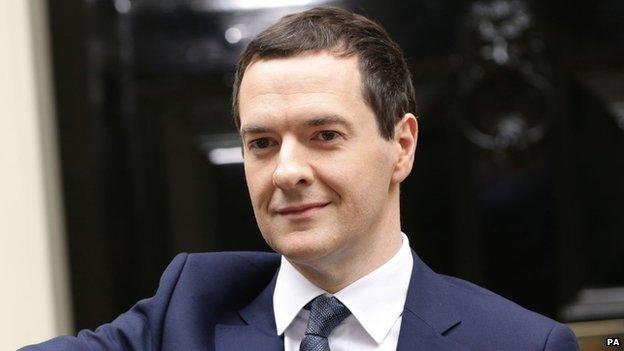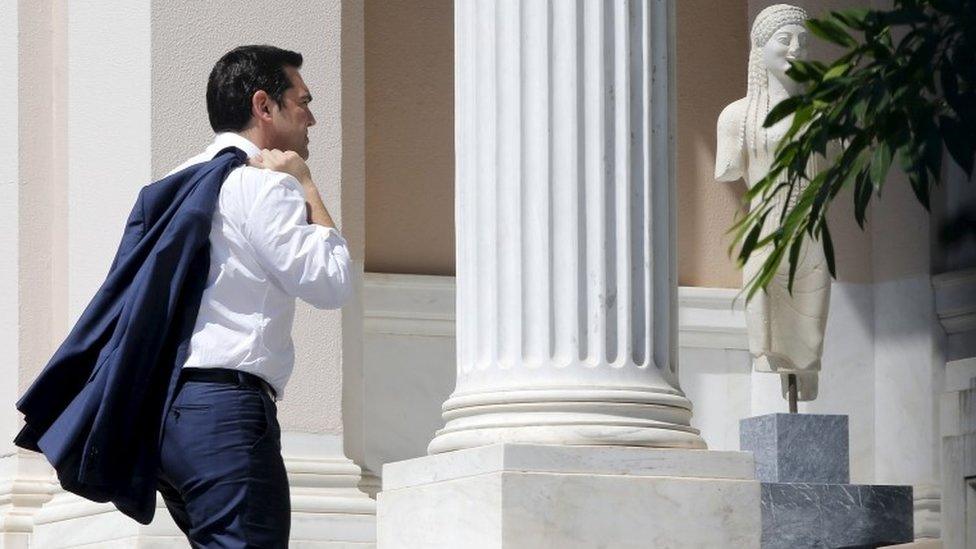Greece debt crisis: No UK cash for bailout, Osborne says
- Published

Chancellor George Osborne has moved to block any attempt to use British taxpayers' money as part of the Greek bailout, Treasury sources have said.
Mr Osborne is said to have told other ministers that using EU-wide cash for a bridging loan was a "non-starter".
Doing so would breach an agreement that an EU-wide emergency fund would not be used to underwrite bailouts, he is expected to tell eurozone colleagues.
Finance ministers from 28 EU countries are due to meet in Brussels later.
'Loud and clear' message
Prime Minister David Cameron said in 2010 he had won a "clear and unanimous agreement" that the European Financial Stabilisation Mechanism (EFSM) would not be used for further eurozone bailouts, after it was used to assist Ireland and Portugal.
Instead, responsibility was meant to fall on member states using the single currency.
The Financial Times reported EU officials as saying that Martin Selmayr, chief of staff to European Commission president Jean-Claude Juncker, had urged the use of the EFSM - a fund covering all EU members - to access bridge financing.
It reported that France was understood to be "particularly keen" to use the EFSM.
"Our eurozone colleagues have received the message loud and clear that it would not be acceptable for this issue of British support for eurozone bailouts to be revisited," the Press Association news agency quoted a Treasury source as saying.
"The idea that British taxpayers' money is going to be on the line in this latest Greek deal is a non-starter."
A Number 10 spokesman said: "Leaders from across the EU agreed in 2010 that the EFSM would not be used again for those in the euro area, and that remains the Prime Minister's view.
"We have not received a proposal and one is not on the table."
- Published14 July 2015
